Michigan Communities Unanimously Reject Marijuana Dispensary Proposals

In the latest round of voting, the citizens of four Michigan communities were faced with a decision that could reshape the local landscape of cannabis commerce. The ballot initiatives in Birmingham, Rochester, Keego Harbor, and Grosse Pointe Park were clear in their intent—to approve or deny the establishment of marijuana dispensaries within their jurisdictions.
The spotlight first turned to Birmingham, where voters weighed in on a proposal that would potentially permit one recreational and one medical marijuana store. However, the ballots tallied early in the counting showed a considerable skew towards the opposition. Just an hour after polls closed, those opposing the measure were leading by a notable margin—73 percent against to 26 percent in favor.
Rochester's proposal, which could have introduced up to three cannabis businesses, faced an even steeper uphill battle. Initial counts revealed a vast majority of 83 percent of voters against, compared to a mere 16 percent in support.
The scenario was marginally different in Keego Harbor, where the 'No' vote was ahead, but not as dominantly, showing a 53 to 46 percent split with all precincts reporting. In Grosse Pointe Park, two-thirds of voters sided with the 'No' camp, leaving one-third advocating for the change.
The reluctance to embrace cannabis establishments is not new in Michigan. Since the legalization of adult-use marijuana nearly half a decade ago, a significant number of municipalities have opted out of hosting such businesses. Despite this trend, state data indicates a slow but persistent increase in the number of localities that are opening their doors to the marijuana market.
The stakes of these decisions are not trivial. Municipalities that permit marijuana businesses stand to gain financially from the industry's revenue. In the previous year, the state dispensed approximately $60 million among participating local governments. With marijuana sales in Michigan projected to surpass the $3 billion mark this year, the economic implications are considerable. Small cities like the ones casting votes could see an estimated $200,000 in tax benefits.
In Rochester, a measure prompted by an independent group from Ingham County suggested a shift in the city's stance on cannabis, only to be resoundingly defeated. This group, having ushered in the ballot initiative, would also have had a say in the intricacies of the operations within Rochester.
When the final votes were in, the message from the three Oakland County communities—Birmingham, Keego Harbor, and Rochester—was unequivocal. Along with Grosse Pointe Park, all four rejected the possibility of marijuana retailers setting up shop. In Rochester, the drive to overturn a ban on cannabis sales was not only unsuccessful but decisively so, with roughly 90 percent opposition on both related ballot questions.
Birmingham's city council faced a similar rebuttal, albeit with a narrower margin of 73.6 percent against the proposal. The council had hoped to preempt efforts by pro-marijuana groups to amend the city charter, which would have constrained the city's regulatory control over the industry.
Keego Harbor presented its voters with a trio of cannabis-related measures, all of which were turned down. Proposals ranged from allowing retail shops to removing the existing ban entirely. The results, though closer than in other cities, still reflected a majority in opposition.
As these votes unfold, they serve as a bellwether for the evolving attitudes toward cannabis businesses in Michigan. While there is a clear movement towards acceptance in some quarters, the results from these four cities illustrate the complex and varied perspectives that exist within the state on the presence of marijuana dispensaries in local communities. The ongoing dialogue between economic incentives and community values continues to shape the landscape of cannabis legislation in Michigan.
Ohio Embraces Recreational Marijuana, Becoming 24th State to Legalize
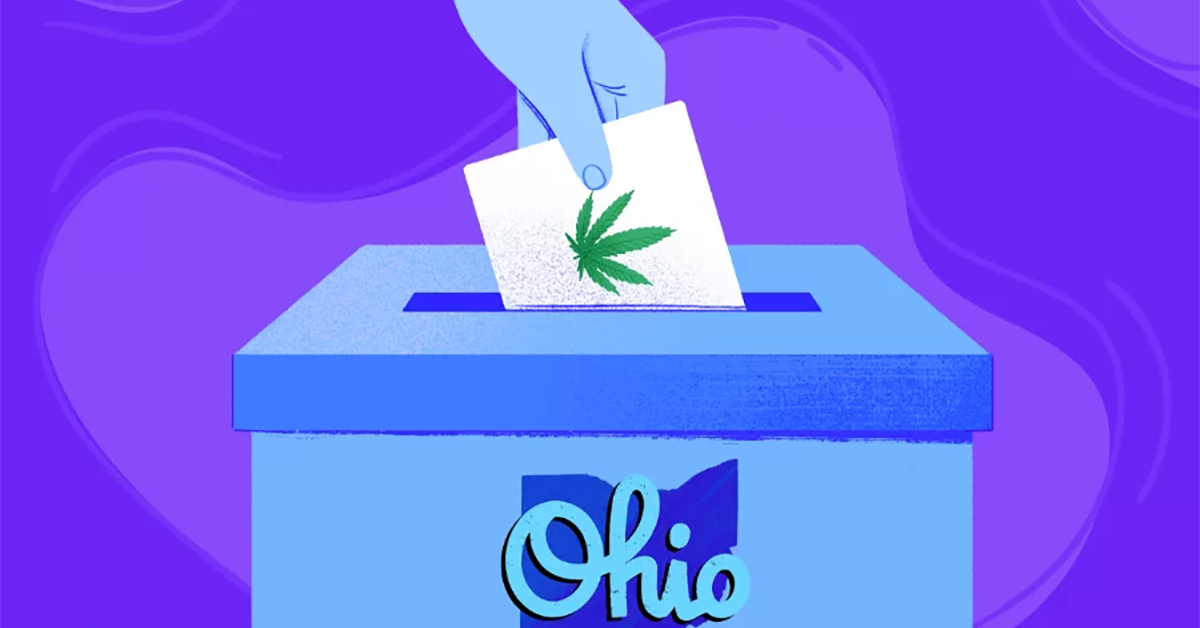
While today's news on Ohio's landmark decision to legalize recreational marijuana might not appear directly related to Michigan at first glance, it carries significant implications for our state. It's anticipated that Michigan will witness a dip in the tax revenue generated from cannabis sales as Ohioans, who previously might have crossed state lines for their purchases, will now be able to buy and use marijuana legally within their own state. This development presents both challenges and opportunities for Michigan's marijuana market and policy landscape.
In a landmark decision, Ohio has joined the ranks of states choosing to legalize recreational marijuana, marking it as the 24th state in the nation to take such a step. The passage of Issue 2 in the recent ballot measure has laid the foundation for a significant shift in policy, reflecting a broader national trend towards the acceptance of cannabis.
This historic vote comes after Ohioans gave the green light for medical marijuana in 2016. Now, with the "yes" vote on Issue 2, adults 21 and older will have the legal prerogative to use, grow, and sell marijuana under a state-imposed regulation and tax program, effectively regulating cannabis similarly to alcohol. The newly approved measure is slated to take effect within 30 days from the passing vote.
The legalization of recreational marijuana in Ohio is seen by many as part of a growing movement that is extending even into traditionally conservative regions. This sentiment echoes the statement by Tom Haren, a spokesperson for the Coalition to Regulate Marijuana Like Alcohol, who noted that Ohio's decisive action points towards a future where adult-use marijuana is legal and regulated.
Under the provisions of the new law, adults will be permitted to buy and possess up to 2.5 ounces of cannabis and to cultivate marijuana plants at their homes. Additionally, a 10% tax on marijuana sales is to be imposed, with the revenue earmarked for administrative costs, addiction treatment programs, municipalities hosting dispensaries, and for social equity and jobs programs aimed at bolstering the industry.
The journey towards legalization has not been without its challenges. The measure faced considerable opposition from GOP lawmakers, Republican Governor Mike DeWine, and various business and manufacturing organizations, concerned about potential impacts on workplace and traffic safety. In a campaign marked by stark contrasting views, opposition groups raised concerns about the sale of marijuana edibles to children and the broader societal implications. Despite these challenges, the measure passed, reshaping Ohio's legal and social landscape.
Ohio's step towards legalization was bolstered by substantial advocacy efforts, as proponents of Issue 2 significantly outraised opposition. It also comes on the heels of an Ohio State University study which forecasts a lucrative economic impact, with potential annual tax revenues between $276 million to $403 million by the fifth year following full legalization.
Issue 2 represents not just a legislative change, but also a cultural shift in Ohio's approach to marijuana. Despite the possibility of legislative adjustments post-passage due to it being a citizen-initiated measure, the electorate's decision carries considerable weight. The future of Ohio's cannabis policy, and indeed the broader national dialogue, has entered a new era of regulatory acceptance and economic opportunity.
As Ohio sets up its Division of Cannabis Control within the Department of Commerce, eyes will be on the state to see how it navigates this new terrain, balancing regulation with economic growth, public health, and social equity. This movement continues to gain momentum, with similar recreational marijuana ballot measures poised to be in front of voters in states like Florida, Nebraska, and South Dakota in 2024, signifying a potential continuation of this trend in American policy.
Michigan's Fresh Legislation Bridges Gap for Tribal Cannabis Ventures
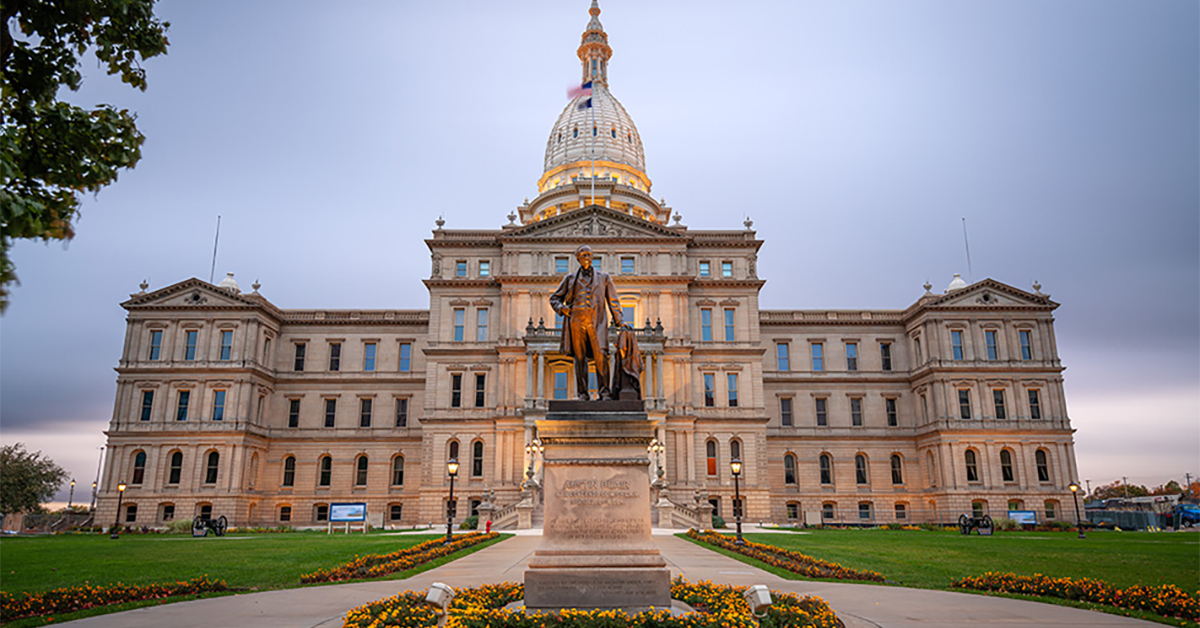
In an effort to unify Michigan's marijuana market and provide equitable opportunities for all, Governor Gretchen Whitmer sanctioned a two-bill package on October 19th. This new legislation facilitates the inclusion of tribal cannabis enterprises into Michigan's regulated marijuana landscape.
The bills in focus, Senate Bill 179 and Senate Bill 180, successfully navigated the Legislature earlier in October. Central to this legislation is the facilitation of compacts between Michigan and its sovereign tribes on matters of cannabis regulation and taxation.
Under the aegis of this legislation, tribal cannabis enterprises can transact within the state's regulated domain. However, this is contingent upon them applying Michigan's 10% excise tax on their sales. In addition, the legislation paves the way for tribes to be eligible for allocations from Michigan's Marihuana Regulation Fund, mirroring the same rates as local governments. Notably, this fund annually disburses 15% of its residual balance to counties and municipalities, this distribution being determined by the volume of cannabis retailers and microbusinesses in their jurisdiction.
The architect of S.B. 179, Senator Jeff Irwin from Ann Arbor, articulated that the primary objective of this legislation is to dismantle the existing barriers between Michigan and its tribal communities. This not only facilitates seamless transactions between state-sanctioned and tribal cannabis enterprises but also aims to amalgamate them into a single, cohesive system. As Senator Irwin expressed at a Regulatory Reform Committee hearing, "We'd no longer have two silos but one system for the trade in cannabis here in Michigan."
A significant voice in the discourse around this legislation has been Whitney Gravelle, the President of the Bay Mills Indian Community. This community, stationed in Brimley, has the distinction of being the first tribe in Michigan to legalize adult-use cannabis. Furthermore, they pioneered the opening of a commercial cultivation unit and a dispensary within their territory.
In her address, Gravelle underscored the limited participation of tribal businesses in the state's marijuana economy and emphasized the challenges they faced due to their exclusion from the Marijuana Enforcement Tracking and Compliance system. Gravelle stated, "Presently, Bay Mills Indian Community licenses and regulates our marijuana activity within our tribal nation's jurisdiction. However, the lack of data exchange with the state implies that during product issues or recalls, our community remains uninformed unless through public channels." She asserted that the new bills would bridge these communication gaps, thereby bolstering public health safeguards for both the state and its tribal communities.
This legislative endeavor garnered widespread support. Among its proponents were the Grand Traverse Band of Ottawa and Chippewa Indians, the Saginaw Chippewa Indian Tribe of Michigan, the Michigan Cannabis Industry Association, the Marshall-based cannabis enterprise Common Citizen, and the Michigan's Cannabis Regulatory Agency.
With Governor Whitmer's endorsement, this duo of bills was immediately enacted, marking a new chapter in Michigan's marijuana narrative.
Chesaning Village Council Advances Marijuana Ordinance Updates
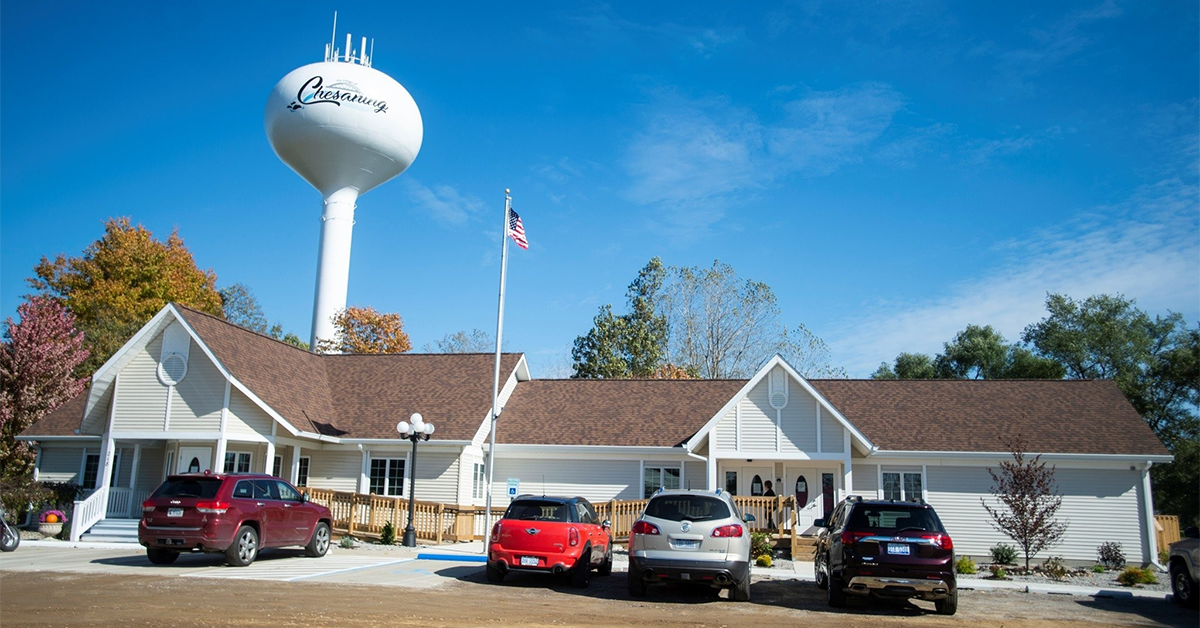
On Tuesday, October 17th, the Chesaning Village Council convened and ratified modifications to three segments of the village's commercial marijuana regulations.
President Pro-Tem Keith Wenzel, despite being absent due to unavoidable work commitments, forwarded a letter to the council elucidating the modifications he suggested for the marijuana ordinance. He highlighted, "Initially, Michigan had a lenient stance on marijuana business regulations. However, there have been steady efforts by the state to refine these rules, and it's imperative we align with these advancements. The current revisions are an essential step towards this, ensuring our businesses evolve beneficially for both themselves and the wider community."
Drawing inspiration from other comparable municipalities' marijuana regulations, Wenzel diligently benchmarked their guidelines against those of Chesaning. The village's finance and administration committee took cues from these examples to recalibrate the village's existing ordinance. Post this, it was submitted to the village's legal counsel for a thorough review.
Expressing his confidence in the proposed amendments, Wenzel commented, "The three ordinance changes presented tonight are lucid and get my wholehearted endorsement. This is just the commencement of our journey to continuously refine our regulations."
Following discussions, council members unanimously greenlit the modifications to the village's marijuana ordinance. The first step was the formulation of ordinance 2023-02. This ordinance revises the Chesaning Zoning Ordinance by introducing the definitions for terms like "hoop house" and "fence (obscuring)."
Moreover, changes were instated to ordinances 2019-02 and 2019-03:
-
Ordinance 2019-02 now encompasses definitions for "interpretation" and "conflicts." It has been amended to mandate an obscuring fence for "outdoor grows," thus ensuring they remain concealed from public view. Additionally, it disallows the usage of hoop houses by both grower and processor facilities.
-
Ordinance 2019-03 has been updated to dictate the licensing norms and oversight of recreational marijuana outfits. It too emphasizes the necessity for an obscuring fence and disallows hoop house use by both types of facilities.
The newly revised rules describe "outdoor grow" as a secure, fully enclosed outdoor space that remains hidden from the general public by an obscuring fence, in compliance with the Chesaning Zoning Ordinance's guidelines. This space must also incorporate dependable locks and active security mechanisms to thwart unauthorized access.
Concluding the meeting, Councilwoman Danielle Chludil, who voiced Wenzel's thoughts to the attendees, hinted that further refinements to the ordinance might be on the horizon, particularly as Michigan undertakes more sweeping updates to its marijuana statutes.
Marine City Contemplates Marijuana Facilities Ordinance
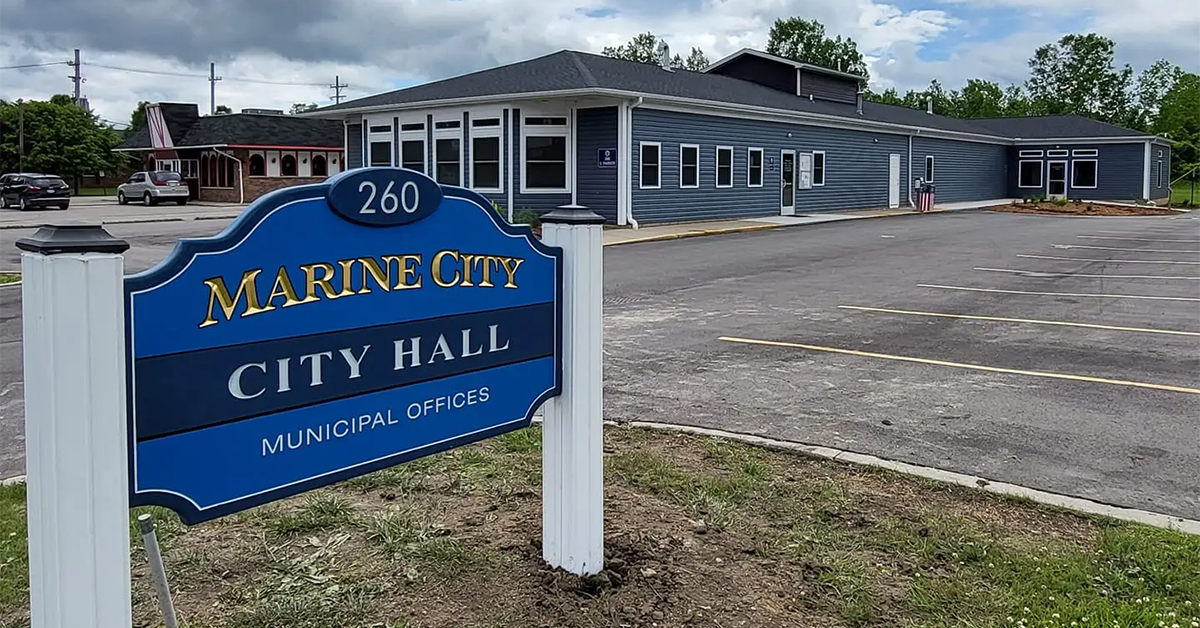
In a succession of consequential meetings, Marine City Commission has embarked on a journey through legal and legislative intricacies concerning the future of marijuana facilities within its jurisdiction. This comes amid extensive discussions, varied opinions, and robust debates, indicating the significance and sensitivity of cannabis legislation in the local governance context.
A Stance Towards Actionable Change
On October 5th, the Marine City Commission reflected a 6-1 voting pattern, spearheading the first reading of an ordinance tailored to license, site plan, and regulate adult-use marijuana facilities. This progression was not without its fair share of legislative intricacies and debates. Notably, Commissioner Michael Hilferink emerged as a vocal dissenting figure throughout the proceedings.
The journey to this point commenced in June, with the commission instructing City Attorney Robert Davis to conceptualize an actionable ballot initiative to permit dispensaries within Marine City. Davis, in response, articulated legal limitations, noting that a direct ballot initiative from the commission was not viable and later presented an ordinance as an alternative.
The Struggle with Setbacks and Legalities
Amidst this progression, complexities surrounding regulatory parameters – specifically, setbacks – emerged. Mayor Pro Tem Lisa Hendrick clarified that the setbacks, as per state law, must measure from lot line to lot line, contrary to the building-to-building measurement initially discussed. Subsequent to this, on September 14th, the commission settled for the first reading of the marijuana ordinance in the ensuing meeting.
The legislative tapestry was further complicated by Commissioner Hilferink, who expressed reservations on the ordinance-centric approach, juxtaposed against the initial preference for a ballot initiative. Davis responded by reiterating the commission's directive to opt for either maintaining the existing 2019 ordinance prohibiting facilities, sculpting an ordinance where the city dictates the location and type of recreational facilities, or navigating the turbulent waters of a legally adherent city ballot initiative.
Dissecting the Ordinance and Upholding Legal Scrutiny
With the evolution from the third to the second option, controversy unfolded regarding the ordinance's formulation and regulatory propositions. Commissioner Rita Roehrig motioned the first reading of the ordinance, which included notably stringent setbacks of 1,000 feet from an assortment of entities, such as residential zones, churches, and child care centers.
However, Hilferink spotlighted procedural disparities, especially considering the previous unretracted motion for a ballot initiative and the commission's obligation to facilitate a discourse on the ordinance's crafting. His grievances extended to transparency and inclusivity in deliberations, critiquing the private submission of comments to Davis rather than fostering an open discussion.
Davis, defending his approach, elucidated that the ordinance had undergone several iterations based on feedback and that it was not formulated in isolation from the commission's inputs. Tensions persisted, with discussions oscillating between the specificities of motions, requested adjustments, and the legitimacy of the setbacks proposed.
Transparency and Future Courses of Action
Despite the ripples of discontent and rigorous debate, the commission, in a 6-1 vote, approved the first reading of the ordinance, again witnessing Hilferink in dissent. Throughout the discussions, Hilferink accentuated potential violations of voter rights, a lack of clear directive for the ordinance, and apprehensions about de facto zoning out of marijuana facilities given the stringent setbacks.
As discussions simmered down, Hilferink underscored the pervasive issue of transparency and conveyed a sentiment that a majority of Marine City might have leaned towards supporting a vote on the marijuana facilities issue, had it been allowed to materialize. The final consideration and approval of the ordinance are slated for a subsequent meeting, promising further deliberations and potential adjustments.
Marijuana Main Street? Rochester to Vote on Cannabis Retail Proposals
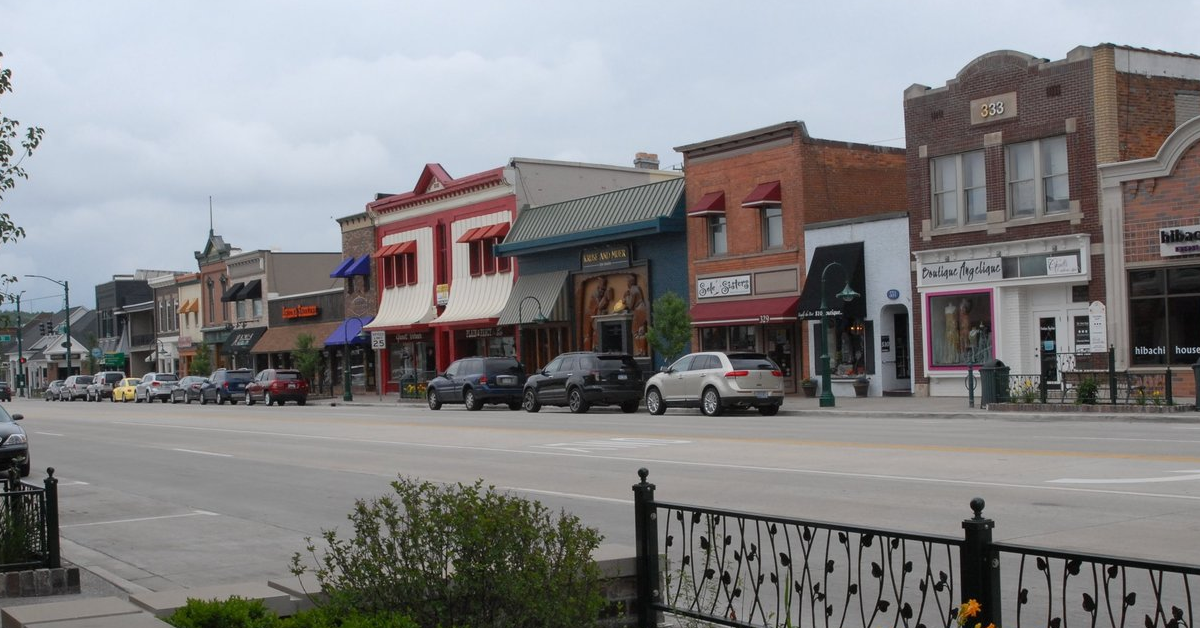
On November 7th, Rochester will be abuzz with voters deciding on two pivotal cannabis-related ballot proposals.
These proposals, initiated through a petition by Stockbridge-based advocacy group, the "Open Stores In Rochester Committee," offer a significant departure from the norm. Typically, such ordinances and charter amendments come from the City Council, but this time it's the voice of the people leading the charge.
Back in 2018, the Michigan Regulation and Taxation of Marihuana Act legalized recreational marihuana for those over 21. A crucial element of this act allows citizens to initiate ballot measures through petitions.
City Attorney Jeffrey Kragt clarifies that the upcoming ballot isn't a City Council initiative. Once a petition garners sufficient signatures, it gains the momentum to move forward. Current city ordinances, established in 2018, explicitly ban marijuana establishments within Rochester. This new motion, if passed, would essentially pave the way for three retail marijuana stores in Rochester, treating them akin to standard retail outlets.
Rochester's Mayor, Stuart Bikson, expressed that these stores could even find a home right in the heart of downtown. The only restrictions being that these establishments couldn't be in residential zones or within 800 feet of K-12 educational institutions.
But what exactly are the two proposals?
-
Proposal One: Seeks voter approval for an ordinance allowing three adult-use cannabis retail establishments in Rochester.
-
Proposal Two: Questions the voters about establishing a cannabis licensing charter, which will lay out an application process, selection criteria, and regulations for these establishments.
Kragt highlighted that the language of these proposals, crafted by the Open Stores in Rochester Committee, will integrate into the City's Charter and Code of Ordinances upon approval. He assures that the committee's role would be limited post-approval, barring their applications for licenses.
Rochester DDA Chairman, Ben Govanelli, shared some numbers. To land these proposals on the ballot, 360 signatures were needed for the ordinance and 560 for the Charter amendment. He also mentioned that the Committee has been proactively securing potential site locations.
With four locations under consideration, including 727 N Main St. and 908 N. Main, there's a buzz about potential effects on downtown Rochester. The DDA, while not taking a firm stance on the cannabis issue, voiced concerns about potential traffic increase and the impact on property values.
However, it's not just about potential challenges. Each of these proposed retail locations could generate approximately $60,000 in tax revenue annually. This equates to nearly 1% of the combined budget of the Rochester city general fund and DDA this year.
Yet, not everyone is on board. The "No Pot On Main Street Committee," consisting of concerned residents and business owners, isn't against marijuana. Their reservations lie in the location of these dispensaries and the potential influx of traffic. Christian Hauser, from the committee, emphasized the need for a more inclusive decision-making process.
On the flip side, Noah Harfouch, a Rochester-based attorney and supporter of the proposal, believes cannabis businesses are becoming as mainstream as any other retail entity. He advocates for embracing this change and acknowledges the profound financial impact they can have on local communities.


 Helpful Links
Helpful Links